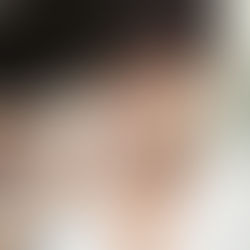The Ultimate Guide to Acne-Free Skin
Holistic esthetician Leslie Morand suffered from acne as a young teen. Through her own skin journey she has formulated a natural approach to clearing up acne. Her mission is to help others, she knows personally how this can affect someone's confidence and self esteem at any age.
Acne Tips from an Holistic Esthetician
Acne is a common skin condition that affects millions of people worldwide. It can be caused by a variety of factors not using the right skin care and make up products that have ingredients.
Other factors are include hormones, stress, and certain medications. While there is no one-size-fits-all cure for acne, there are a number of things you can do to manage it and keep your skin looking its best.
Being an esthetician for over two decades Leslie Morand has helped many clients over the years with acne. From adolescents to adults. The key is to have patience and commit to a 3 to 6 month program.
Professional Treatments
There are a number of professional treatments that can be effective in treating acne. These include:
Acne facials: These facials are designed to deep clean the skin and remove impurities. Proper extractions that will not scar by your esthetician. They can also help to reduce inflammation and redness.
Acne oxygen facials: These facials use oxygen to help kill bacteria and promote healing.
Chemical peels: Chemical peels use acids to exfoliate the skin and remove dead skin cells. They can also help to improve the appearance of acne scars.
Home Care
In addition to professional treatments, there are a number of things you can do at home to help manage your acne. These include:
Use gentle cleansers and moisturizers: Choose products that are oil-free and non-comedogenic, which means they will not clog your pores.
Exfoliate regularly: Exfoliating helps to remove dead skin cells, which can clog pores and lead to breakouts. Aim to exfoliate 1-2 times per week.
Use spot treatments: Spot treatments can help to reduce inflammation and redness. Look for products that contain lactic, mandelic acid or salicylic acid.
Avoid touching your face: Your hands can transfer bacteria to your face, which can lead to breakouts.
Change your pillowcase and towels regularly: This can help to prevent the spread of bacteria.
Nutrition
Certain foods can trigger acne breakouts in some people. These include:
Dairy products
High-sugar foods and drinks
Processed foods
Eating a healthy diet can help to improve your overall skin health and reduce the severity of your acne.
Skin Care Tips
In addition to the tips above, there are a few other things you can do to help keep your skin healthy and prevent breakouts:
Make sure your hair care products do not contain coconut oil, cocoa butter, or sodium lauryl sulfates. These ingredients can clog pores.
Manage stress. Stress can trigger breakouts in some people. Find healthy ways to manage stress, such as exercise, yoga, or meditation.
With proper care, you can manage your acne and keep your skin looking its best.
Fill out the Skin quiz to get recommendations for your skin
To learn more go to www.leveiskincare.com



































